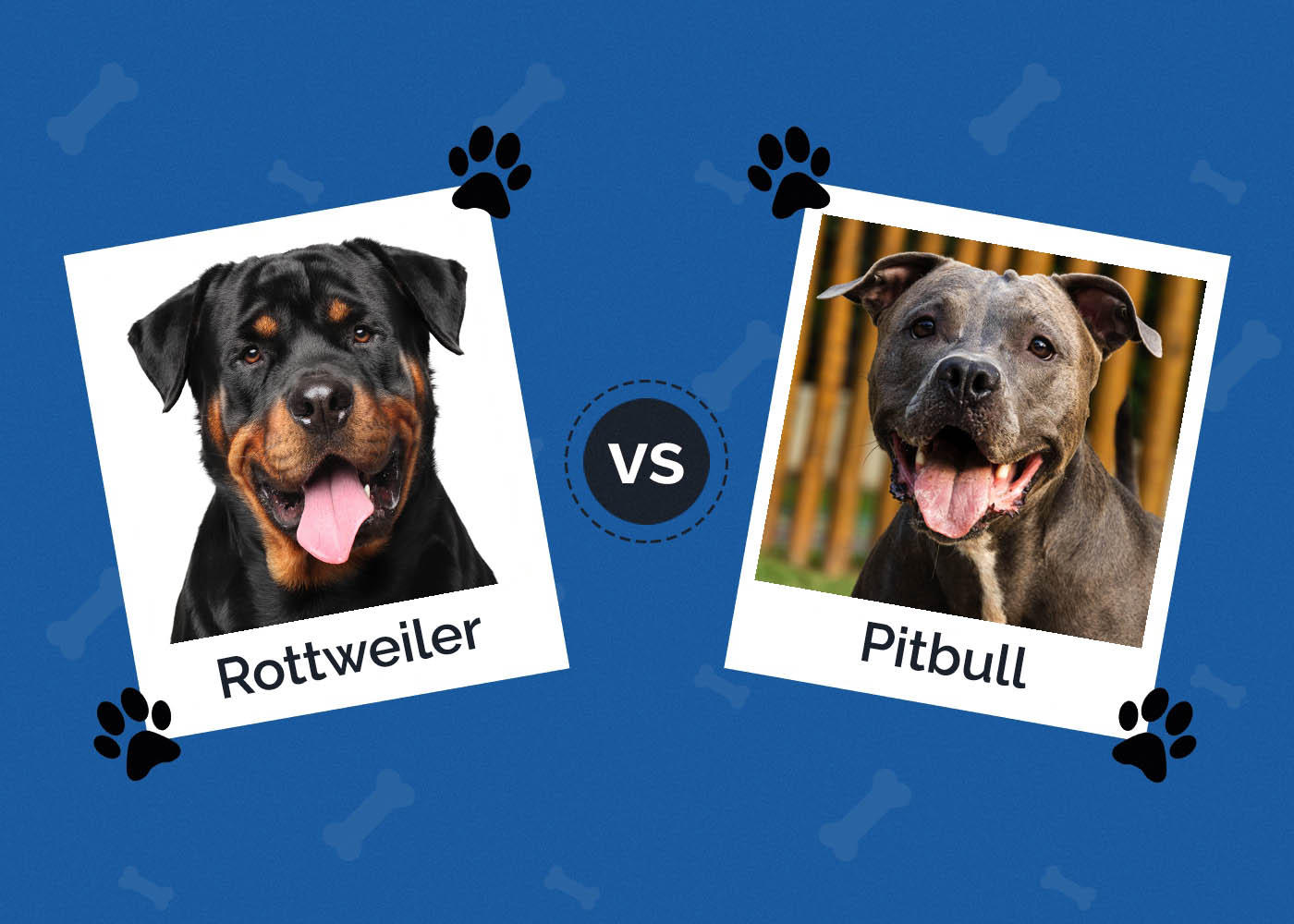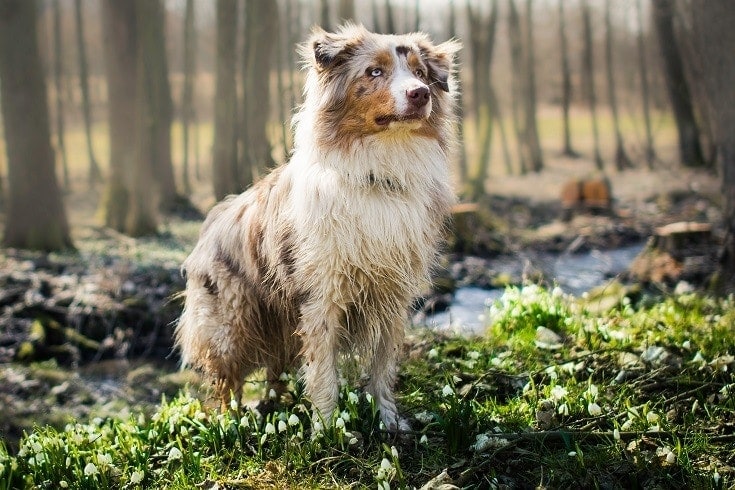Can Dogs Eat Hazelnuts? Are Hazelnuts Safe for Dogs?

Updated on
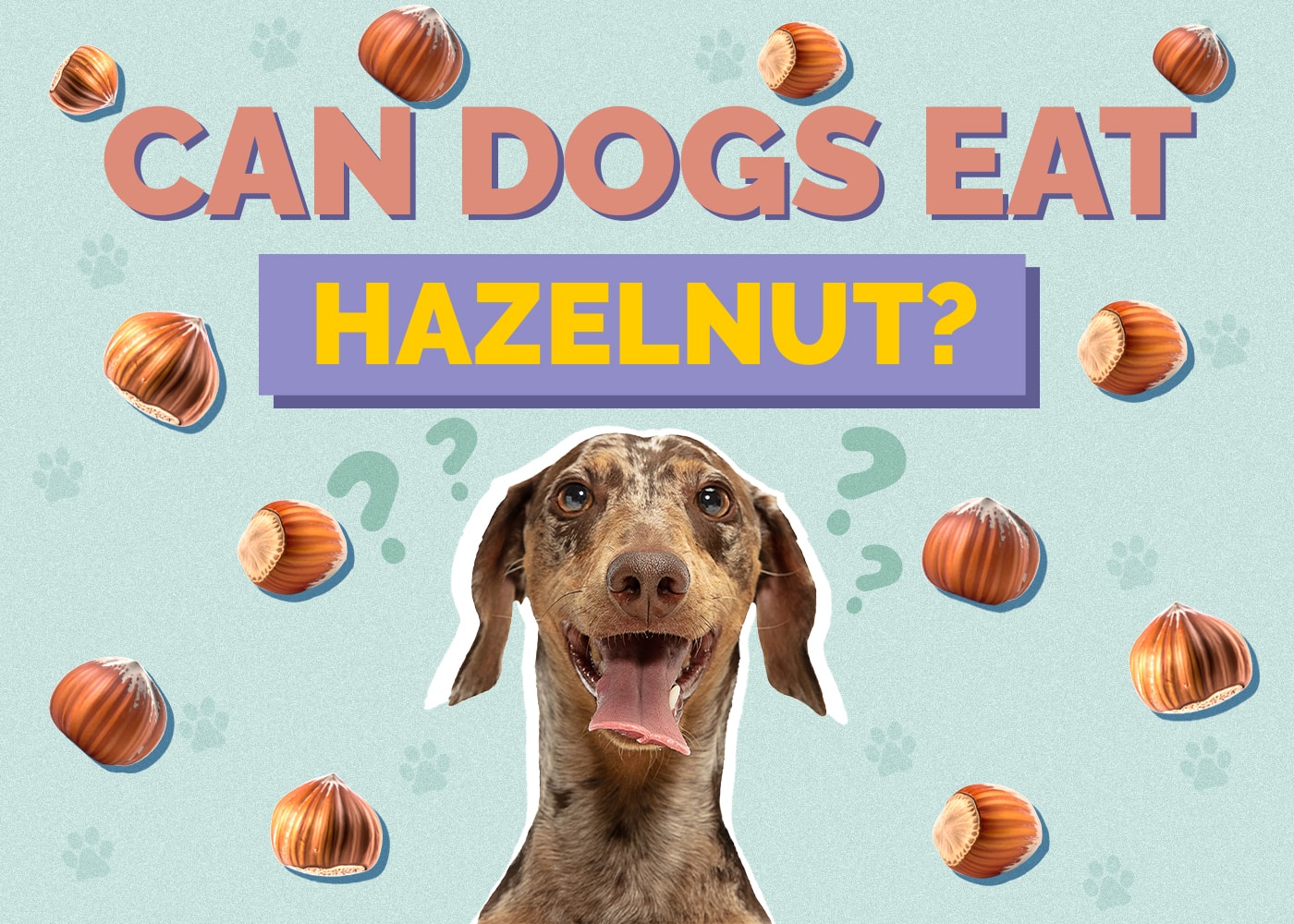
Hazelnuts are chewy and delicious – raw, roasted, or covered in chocolate. And though these nuts are not toxic to dogs, you should not share your tasty snack with your four-legged best friend.
That’s because hazelnuts are not healthy for dogs. They can be dangerous in large quantities and in a long-term health sense. But you needn’t rush to the emergency clinic if a few stray hazelnuts are snapped up and chomped down.
In this article, we’re going to dig into why and how hazelnuts are not healthy for dogs to eat, as well as give some facts and history on the nut itself.
Hazelnuts Nutrition and Fun Facts
Hazelnuts come from the hazel tree and are native to the Northern Hemisphere of the globe in temperate climates. And humans have been eating them as far back as 8,000 years ago! Turkey leads the world in the production of hazelnuts, and they are used to create a bevy of foods and drinks.
The heavenly confection, praline, is made from hazelnuts and they are also the key ingredient of Frangelico liqueur. Hazelnuts are most frequently paired with chocolate, like in Nutella, but are also turned into pastes, roasted, or pressed for their strongly flavored cooking oil.
Here’s some of the key nutritional information from the USDA, based on 100g of raw hazelnuts:
- Protein, 14.9g
- Total fats: 60.7g
- Potassium: 680mg
- Mono & polyunsaturated fatty acids: 53.6g
- Saturated fatty acids: 4.4g
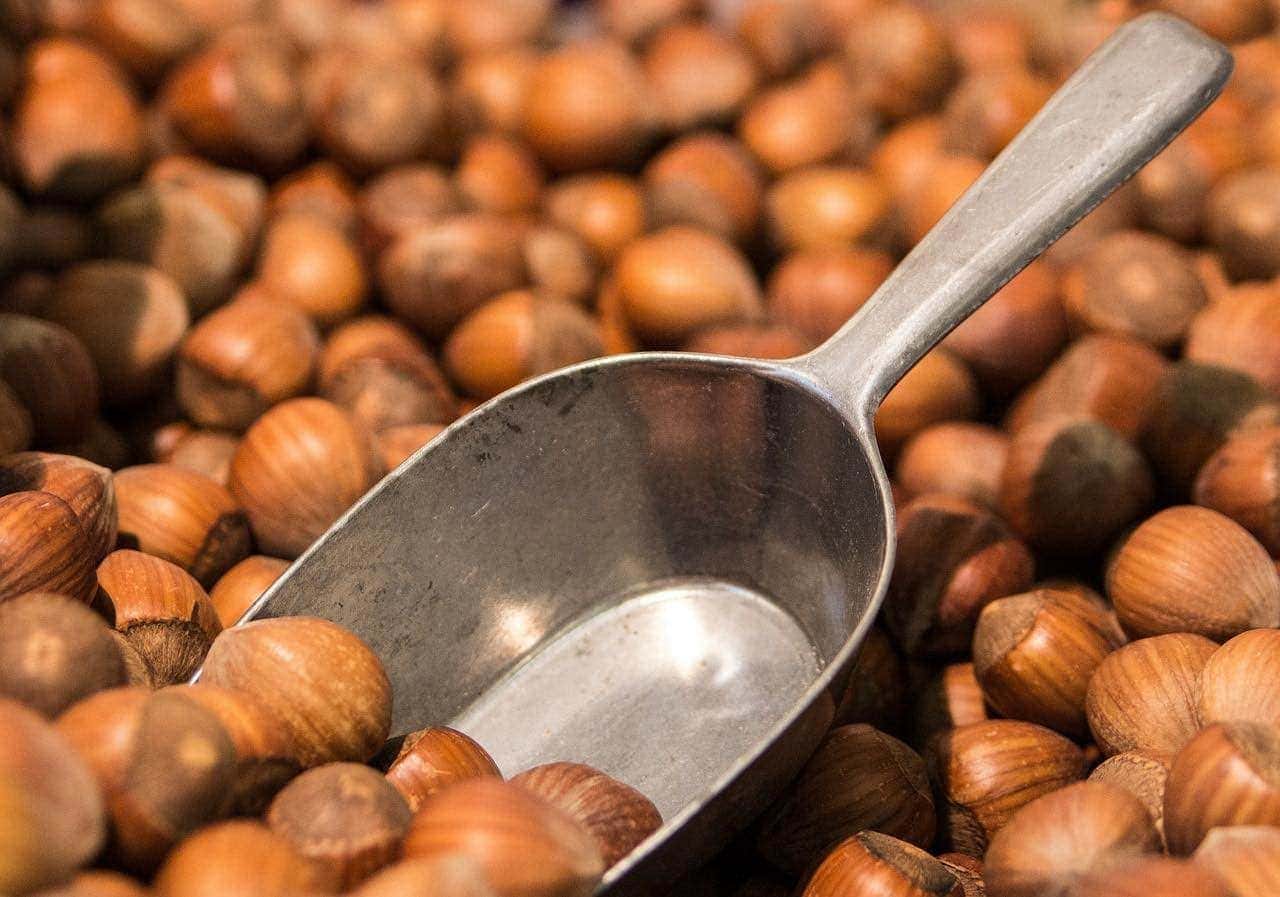
Can Hazelnuts Be Bad for Dogs?
First off, if your pup eats a large container of nuts (hazelnut or otherwise) call a veterinarian immediately. In large quantities, nuts can cause serious harm to a dog’s pancreas and your vet may need to pump your poor pooch’s stomach.
Hazelnuts are not appropriate food for your dog. They are not extremely dangerous, so no need to freak out if Fido hoovers a few dropped hazelnuts. But many aspects make them an unhealthy choice on a regular basis.
Obesity
Hazelnuts, like most nuts, are incredibly rich in fats. No matter whether they’re good fats or bad fats, too much of either can cause weight gain and obesity. Extra pounds on your pooch can affect their energy levels and contribute to issues with diabetes and joint pain.
Pancreatic Issues
All those excess fats can also cause serious issues for your dog’s pancreas. Excessive fat consumption in a long-term sense, as well as a significant intake in one sitting, can cause pancreatitis or inflammation of the pancreas as well as damage to the surrounding organs and tissues.
Pancreatitis causes extreme pain and various digestive issues. It can become fatal if overlooked for long enough.
- Repeated vomiting
- Diarrhea
- Distention of the abdomen, painful to the touch
- Dehydration
- Loss of appetite
- Fever
- Lethargy/weakness
Even one symptom warrants monitoring, but if your dog exhibits multiple of these symptoms call your vet immediately.

Intestinal Obstruction
Another reason hazelnuts don’t make good snack choices is their size and toughness. Some dogs don’t chew very thoroughly, and nuts like these can pass through the stomach without being broken down fully by its acids.
Intestinal blockages can occur when something becomes lodged in the intestines. Depending on your dog’s size and the number of hazelnuts eaten, your pup may be unlikely to experience complications in their digestive tract.
Small dogs and puppies are especially prone to blockages due to the small size of their intestines.
- Vomiting
- Diarrhea or constipation
- Drooling and burping
- Straining during bowel movements
- Pain and bloating in the abdomen
- Loss of appetite
The symptoms are like that of pancreatic issues, and an intestinal blockage is similarly dangerous. Call your veterinarian immediately if you think your dog may have a blockage.
Are Nuts Bad for Dogs?
Hazelnuts are not toxic to dogs, but many other nuts are. Here are some of the most dangerous nuts that you should never let your dog eat:
If your dog eats any of these nuts, call your veterinarian as soon as possible. Most are not immediately fatal but can produce symptoms such as vomiting, diarrhea, weakness, lethargy, and even seizures.
Health Benefits of Hazelnuts for Dogs
As we discussed above, it is inadvisable to allow your dog to eat hazelnuts or include them as part of their diet. If your dog eats a few hazelnuts accidentally, however, it is unlikely to hurt them. And there are a few fringe nutritional benefits.
Hazelnuts are a dense, complete protein. They are also rich in fatty acids that support joint, skin, and hair health. And these little nuggets are absolutely packed with potassium, an essential nutrient for fluid retention, urinary health, and preventing osteoporosis.
But as tasty and healthy as hazelnuts are for people, the negatives far outweigh the benefits for dogs. Best to keep hazelnuts out of their diet, though you don’t have to worry if they sneak a few out of your snack bowl.
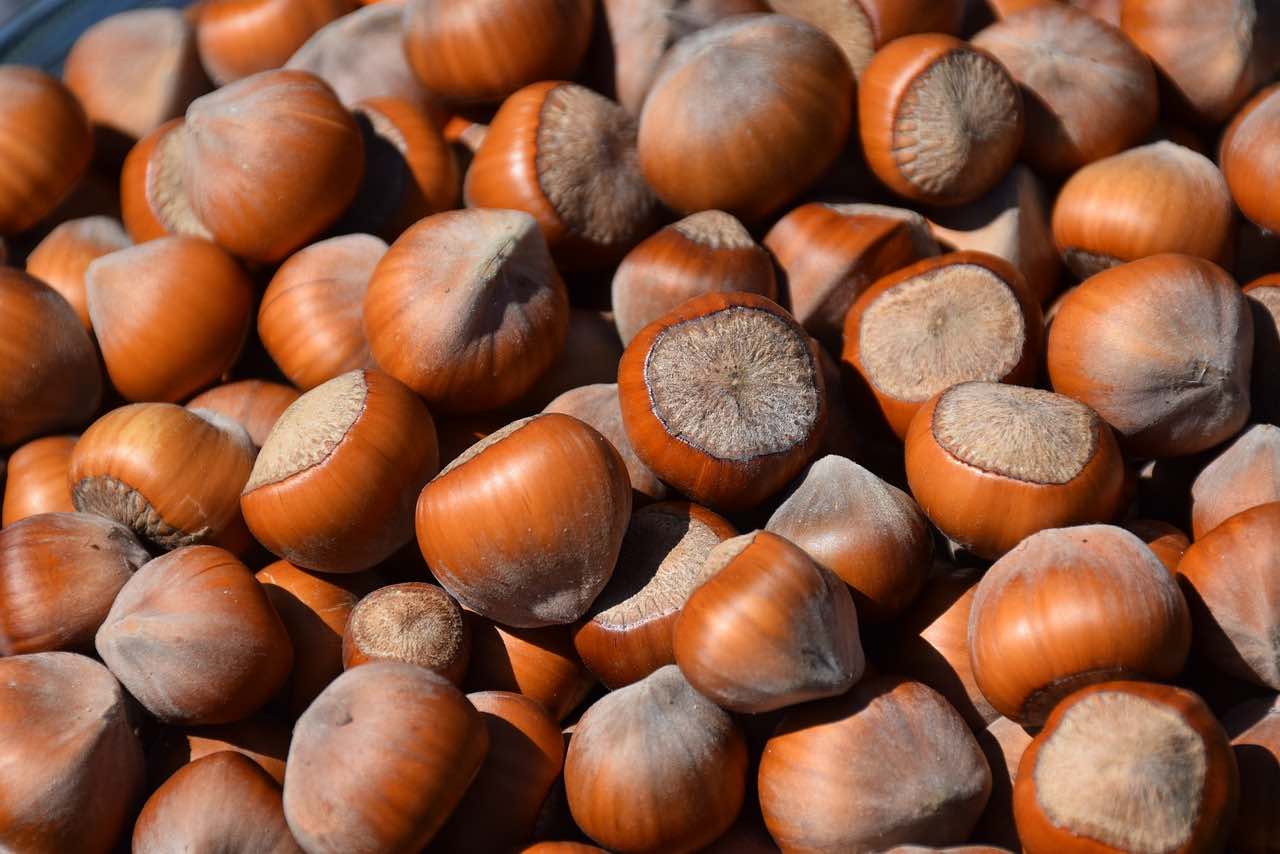
Can Puppies Eat Hazelnuts?
Though technically non-toxic, it is not a good idea to let your puppy eat hazelnuts. Choking and intestinal obstruction are much more likely with a small, clumsy puppy than with an adult dog.
Plus, as a growing canine, it’s best to stick to nutritionally sound foods and not take chances with anything of questionable nutritional value. All the health downsides would likely be magnified for a developing body and a puppy’s sensitive digestive system.
Final Thoughts on Feeding Hazelnuts to Your Dog
All in all, having the occasional hazelnut will not put your dog in imminent danger. These nuts are most unhealthy in large amounts, or regularly over long periods.
But is Fang wearing you down with those puppy dog eyes every time you try to have a snack? Check out this list of fruits and vegetables that you can share with your pup from the American Kennel Club. Maybe once he gets a nibble of his own, he’ll give you some peace!
Related Read:
Featured Image Credit: _Alicja_, Pixabay


